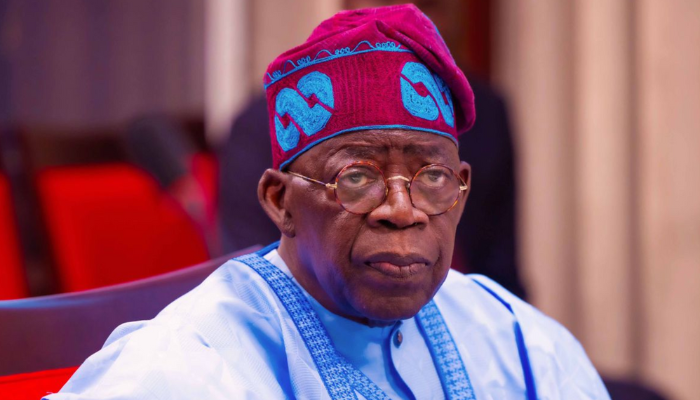President Bola Ahmed Tinubu is set to unveil the refurbished National Arts Theatre in Iganmu, Lagos, on Wednesday, October 1, as part of the nation’s 65th Independence Day celebrations. The iconic structure, recently renamed the Wole Soyinka Centre for Culture and the Creative Arts, underwent a comprehensive overhaul funded by the Central Bank of Nigeria (CBN) and the Bankers’ Committee.
The renovation project, which has drawn national attention, is viewed by its backers as a bold investment in Nigeria’s cultural heritage and creative sector. Earlier in 2024, Tinubu assigned the theatre its new name in honor of the Nobel Laureate, signaling his administration’s intention to reposition the facility as a hub for artistic excellence.

At the inauguration ceremony, which will gather state governors, legislators, diplomats, captains of industry, cultural ambassadors, academics, and youth leaders, the relaunch will also feature performances by the National Troupe and leading talents. Professor Wole Soyinka is expected to deliver remarks. The CBN Governor, Olayemi Cardoso, will lead the welcome address, while Lagos State Governor Babajide Sanwo-Olu and the Minister of Arts, Culture, Tourism, and Creative Economy, Hannatu Musawa, will deliver goodwill messages.
According to statements from the CBN, Bankers’ Committee, and the Federal Ministry of Arts, Culture, and Creative Economy, the refurbished edifice will do more than honor Nigeria’s past—it will act as a springboard for the country’s creative industries. While the financing and physical work were handled by the CBN and Bankers’ Committee, the Ministry will oversee programming, policy alignment, and stewardship of the theatre to ensure it serves national interests.
In comments before the launch, Governor Cardoso emphasized that the project represents more than masonry and aesthetics: “This is not just an edifice; it represents our history and culture. The transformation of this landmark into a world-class facility is a testament to the Nigerian spirit.” Governor Sanwo-Olu cast the centre as a new national stage: “The Wole Soyinka Centre for Culture and the Creative Arts will not only showcase arts, tourism, and culture, but will also serve as a world-class venue for global conferences and performances.” For her part, the minister described the renovation as a milestone: “The successful renewal of the National Theatre marks a stride in our collective efforts to preserve our cultural assets while creating new opportunities for the creative industry.”
The upgrades carried out on the theatre are said to bring it up to global performing-arts standards. Among the improvements are a revamped HVAC (heating, ventilation, and air conditioning) system; enhanced fire safety infrastructure; modern electrical, water supply, and sewage systems; advanced audio-visual and lighting control systems; world-class stage engineering; the installation of 17 passenger lifts; integration of solar power; upgraded interior furnishings and finishes; and restoration of historical artworks across both the façade and interior areas.
The National Arts Theatre has a storied history. Constructed during the Gowon administration and completed in 1976 under President Olusegun Obasanjo, it gained international prominence as the site for FESTAC ’77—the Second World Black and African Festival of Arts and Culture. Over decades, the facility had suffered neglect, falling short of standards for major performances, and its refurbishment has long been called for by stakeholders in the arts. The rebranding in 2024 to Wole Soyinka Centre was a symbolic move designed to reaffirm the theatre’s cultural significance.
Observers view the planned inauguration as pivotal. If executed smoothly, it may mark a turning point for Nigeria’s creative economy, signaling renewed commitment from government to invest in the arts. But skeptics warn that the theatre’s long-term success will depend not just on a grand opening, but on sustainable funding, programming, upkeep, and public engagement.
Ahead of the ceremony, anticipation is high among artists and cultural groups who see the theatre’s rebirth as an opportunity. For decades, Nigeria’s entertainment sector has grappled with inadequate venues, aging infrastructure, and limited government support. A functional, world-class central theatre could offer a national showcase for драма, music, dance, film, and cross-cultural hybrid performances. It might also attract international events, festivals, and conferences, boosting tourism and local economies.
Still, challenges remain. Operational management, security, maintenance culture, and consistency of funding will test the viability of the renovated facility. The Ministry’s role in programming will be critical. If the theatre is underutilized, it risks falling back into disrepair. Critics will also watch whether the central government, states, and private sector will sustain support beyond the inauguration fanfare.
Moreover, accessibility, ticket pricing, and local community engagement will be important issues. For the theatre to fulfill its promise, it must appeal not only to elite audiences but also to broader, grassroots cultural expression. Ensuring that performances and events are inclusive and affordable can help broaden its reach and relevance.
The timing of the inauguration is symbolic. Tied to Independence Day, the reopening is being framed not just as a building relaunch, but as part of Nigeria’s narrative of renewal and cultural pride. The symbolism of a restored national arts landmark on the day the country marks its 65 years of sovereignty is powerful.
As the countdown to October 1 draws nearer, eyes across Nigeria and the creative world are on Lagos. The success, conduct, and legacy of this event could shape public perceptions about the government’s commitment to culture and creativity. Should the Wole Soyinka Centre live up to its promise, it may become a beacon for creative revival. But if the grand stage fails to deliver sustained vibrancy, the inauguration might come to be seen as symbolic theatre itself.
Support InfoStride News' Credible Journalism: Only credible journalism can guarantee a fair, accountable and transparent society, including democracy and government. It involves a lot of efforts and money. We need your support. Click here to Donate
